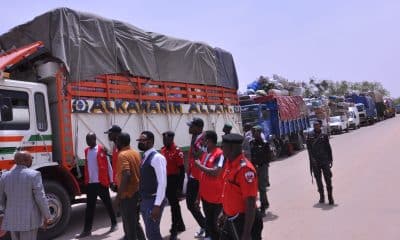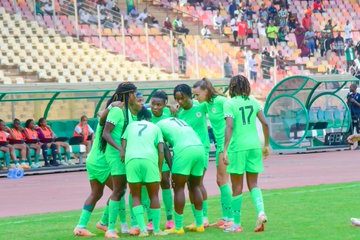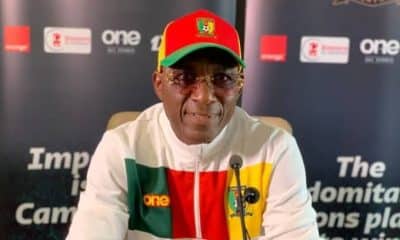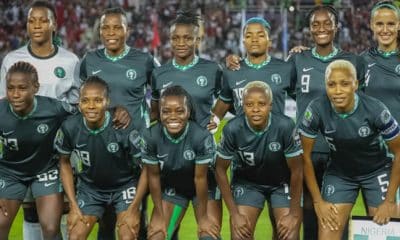Africa News
Nigerian Traders Leaves Crisis Torn Anglophone Cameroon


President Paul Biya of Cameroon
Nigerian Traders Leaves Crisis Torn Anglophone Cameroon
The Biggest Nigerian traders who have being running the key markets in the towns of the English-speaking regions of Cameroon have been fleeing the region as a result of the ravaging crisis that has been rocking the region for a while now.
The unprecedented internal armed conflict which many fear would turn into a civil war had cumulated from a mini industrial action against the imposition of French language by lawyers and teachers.
Many civilians including women and children have dead as a result of the clashes between the country military and separatists seeking to establish a state they would call ‘Ambazonia’.
No fewer than 160,000 people have been internally displaced, according to the UN Office for the Coordination of Humanitarian Affairs are now internally displaced, while a further over 21,000 have crossed to next door Nigeria as refugees.
NAN reports that In a bid to express dissent activists have instituted a civil disobedience action called “ghost town”; which grounds daily activities every Monday, with extensions to some other key days.
Traders who spoke to Quartz, a news agency see the operation as economically counterproductive as at least one full business day is forfeited each week since late 2016. Those who dare disobey the order risk facing the wrath of unknown arsonists who have burned down shops in nearby towns.
“Amba Boys”, an armed secessionists have put in place intermittent road blocks on-and-off along major highways in the troubled area. This move also forced the government to close it western border with the Nigeria on at least two occasions, while dusk to dawn curfews instituted by some local administrative authorities have simply helped to worsen the precarious situation.
Nigerian traders in Cameroun in Kumba, the economic hub of the South West region dealing in motor spare parts, liquor, electronics, fabrics, cosmetic products, among others. Like in Nigeria itself, many of the traders are of the Igbo ethnic group and their neighborhood in Kumba is named “Igbo Quarter”.
Most of the Nigerian traders in Kumba have been doing business in the town in the last two decades. But many are now considering leaving for both safety and business reasons. Similar to Cameroon, some ethnic Igbo political activists have over the last two years been reviving a call for the separate Biafra state to be carved out of Nigeria’s eastern region close to Cameroon.
The president of the over 250-man strong Imo State Union in Kumba, Kevin Ndubuisi, says his Nigerian compatriots have been returning in their numbers. “But no one tells you when he is returning. Some have just gone back as though they were going for a business trip but never returned.”










